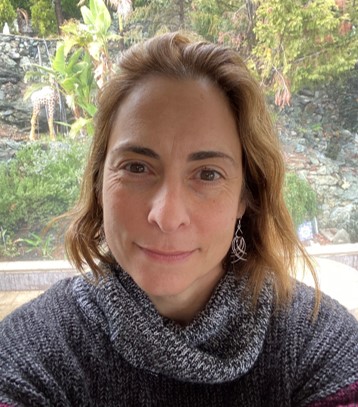
Whether you’re a fan or not, you may know there’s a well-documented truth proven time and again across all major sports: an unbalanced team doesn’t get very far. Barry Bonds led the world in home runs, but his Giants never won a ring; after he left, they won three world titles with teams where nobody hit more than 30. When the Warriors landed Bernard King, they quickly realized they couldn’t build a team around his elevated salary. The 49ers rode Joe Montana and Steve Young to five Super Bowl wins — and have spent decades since struggling to once again find that balance.
Playing to strengths
Sports metaphors are constantly used in business, such as when we say something is in someone’s wheelhouse or explain a failed task by saying somebody dropped the ball. It’s no surprise, then, that the business world has many parallels to sports — and a smart hiring manager knows to seek balance in their team.
“We all work in teams,” agrees Dina Papagiannaki, partner engineering manager for Azure Networking. “And one thing I tell my teams is that the problems we are solving in our industry go beyond any single individual’s intellectual capacity. I truly believe this. It is my philosophy as a leader and as a manager that we will only be successful if we work as a team and play to each other’s strengths.”
These days, Papagiannaki is signing up prospective team members, looking for that next skilled Microsoft quarterback, designated hitter or power forward. But she knows that it’s a balanced team that wins championships, and she leads her team with that mindset.
“Where is my role in this? I see myself as the coach,” she says with a smile. “It’s my job to put the team in its best position to win, by making sure everyone compliments each other and has the passion and confidence needed to take things to the next level. This is not about me, it’s more about the broader team — one that comprises salespeople, product managers, software developers, quality engineers, network engineers and more.”
Embracing a growth mindset
Moving beyond the sports metaphors, Papagiannaki explains that when she’s interviewing, she looks for people who are passionate about one thing — and wise enough to know that you can’t be an expert in everything.
“We have a growth mindset, a mindset that focuses on what people are capable of as opposed to the specific tasks they can accomplish,” she reasons. “We are all constantly learning, from our success and our failures. This mindset is about learning new lessons and pushing an individual to achieve more than their past experiences.”
But just as many times the best sports coaches are ex-athletes themselves, Papagiannaki is quick to point out that she has shaped such expectations with the wisdom of personal experience. “Myself, I’m not perfect. And I’m very comfortable with not being perfect,” she laughs. “I don’t want to be good at everything, I want to be good at the types of tasks where I can add unique value. When you start seeing your role as wanting to develop skills in areas that are truly interesting to you, and you’re comfortable letting other people pick up other tasks, then you get a team that contributes in all areas according to their passions and their interests. This is a better team to have, in my view.”
Inspiration and interviews
It’s a view that translates easily as she interviews perspective team members in the Bay Area — because Papagiannaki herself came to Microsoft earlier this year, and was just recently sitting on the other side of the desk. “Preparation is fundamental; brush up on your skills, understand the mission of the company, and be prepared to explain why your own personal mission aligns,” she explains. “Another thing to keep in mind is that the interview process is a two-way street. It is about the candidate convincing the employer they’d be a great addition to their team, but it’s just as much about the employer convincing the candidate that this is the place you can grow your skillset and gain the experiences you need.”
Born and raised in Greece, Papagiannaki knows how the Microsoft name is perceived throughout the world — and is excited to “coach” a team with the potential to further that legacy.
“I grew up in Greece using Windows as a kid. Over multiple decades, Microsoft has been associated with technology and innovation all over the world,” she says with pride. “I find it very inspiring to come into a company like this. Microsoft has spearheaded a technological revolution and continues doing so while embracing principles, such as diversity, inclusion, and respect, continuously transforming the technological landscape of society as we know it.”
If you are interested in attending the digital Azure Interview Days March 18 and 19, sign up here to be considered: https://aka.ms/AA7opnr. Not available? No problem, those that register will be contacted for future interviewing events as well.
All other career opportunities for Microsoft in the Bay Area can be found here: https://aka.ms/MicrosoftBayAreaCareers.



